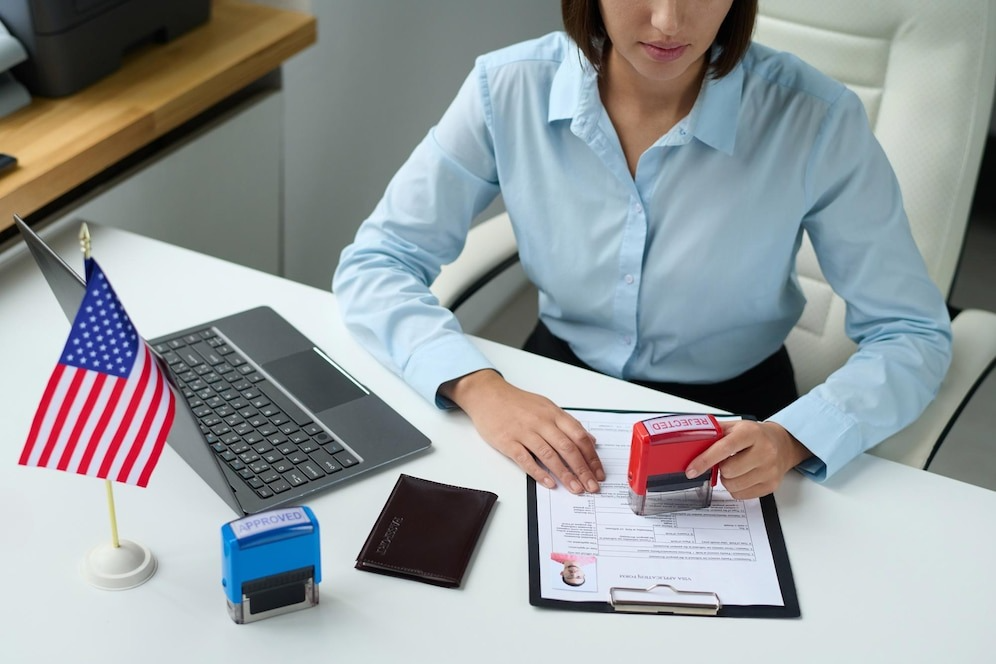
If you’re planning to apply for a Business Visa in Australia, proving your business experience is one of the most important steps. The Australian government wants to make sure that applicants have real skills and experience in running or managing businesses. This helps ensure you can contribute to the economy once you arrive.
In this guide, we’ll explain how to prove business experience for your Australian visa application, what documents are required, and tips to improve your chances of success.
Why Business Experience Matters for a Business Visa in Australia
When applying for visas like the Business Innovation and Investment Visa (Subclass 188), the Department of Home Affairs assesses your business background to ensure you meet the eligibility criteria. You must show that:
-
You’ve owned or managed a business for a certain number of years
-
The business was active and legally operated
-
You had a direct role in decision-making, planning, and financial management
This proves you’re capable of running a successful business in Australia.
Types of Business Experience Accepted
The Australian immigration system accepts different types of business backgrounds. You may be eligible if:
1. You Owned a Business
If you were a sole trader, partner, or majority shareholder, you can apply as a business owner. You’ll need to prove you had ownership and control of the business operations.
2. You Managed a Business
If you were a senior manager in a large company (e.g., General Manager, Director, CEO), you might still be eligible under certain streams. You’ll need to show that you played a key role in decision-making and financial control.
3. You Ran Multiple Businesses
Running more than one business can help strengthen your case — as long as you can show consistent, active involvement in each of them.
Documents You Need to Prove Business Experience
You’ll need to collect several official documents to show your history in business. Here’s a breakdown of what’s commonly required:
Company Registration Certificates
Proof that your business was registered with the local government or corporate body. This is usually the first thing immigration officers will check.
Business Tax Returns
Submit personal and business tax documents for at least two out of the last four years before your application. This shows that your business was active and profitable.
Financial Statements
Audited financials such as balance sheets, profit & loss statements, and bank statements to demonstrate your business’s revenue and financial health.
Business Activity Statements (BAS)
If applicable in your country, these show the flow of money in and out of your business.
Ownership Proof
Shares certificates, partnership deeds, or sole trader registrations that show your level of ownership.
Employment Records (For Managers)
If you were not the owner, you’ll need a detailed resume and reference letters from employers showing your position, responsibilities, and duration of employment.
Contracts or Invoices
Client contracts, vendor invoices, or business agreements can help verify your business operations.
How Immigration Solutions Lawyers Can Help
Preparing a Business visas Australia can be complex. A legal professional like Immigration Solutions Lawyers can help you:
-
Collect and verify all required documents
-
Draft professional statements of experience
-
Respond to any questions from the Department of Home Affairs
-
Avoid costly delays or rejections due to incomplete paperwork
They are highly experienced in helping entrepreneurs and investors from around the world settle in Australia through legal and well-prepared visa applications.
Tips to Strengthen Your Business Experience Evidence
Here are some extra tips to ensure your documents are strong and your case is solid:
Be Consistent
Make sure all your documents match in terms of dates, financials, and ownership percentages.
Translate Documents
If your documents are not in English, get them translated by a certified translator.
Avoid Fake or Altered Documents
Submitting incorrect or fake papers can lead to a visa ban. Always use genuine, verifiable documents.
Add Supporting Letters
Include reference letters from accountants, business partners, or clients to support your claims.
Be Clear and Professional
A short personal statement explaining your business role can help immigration officers understand your experience better.
Common Mistakes to Avoid
Even qualified applicants sometimes get rejected due to small errors. Avoid these:
-
Submitting only personal tax returns (you need business tax documents too)
-
Not showing actual control or decision-making in your business
-
Forgetting to translate non-English documents
-
Missing important financial records like profit and loss statements
-
Inconsistent or unclear dates and business timelines
Frequently Asked Questions (FAQ)
Q: How many years of business experience do I need?
Usually, at least two out of the last four years running or managing a business.
Q: Does freelancing count as business experience?
Only if it’s properly registered, taxed, and structured as a business.
Q: Can I apply without formal financials?
You may still qualify, but it will be harder. Work with a migration lawyer to strengthen your case.
Final Thoughts
Proving your business experience is a key part of a successful Australian Business Visa application. The stronger and clearer your documentation, the better your chances of getting approved. From financial reports to ownership documents, every piece counts.
If you’re unsure where to start or need help with paperwork, consulting with professionals like Immigration Solutions Lawyers can save you time, money, and stress.